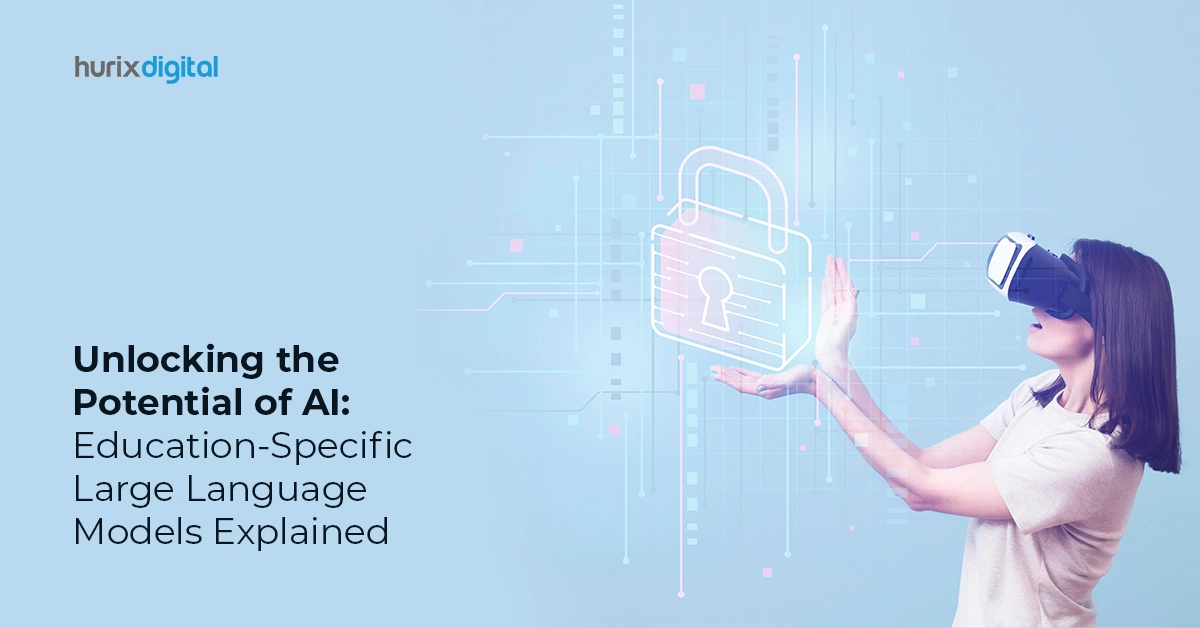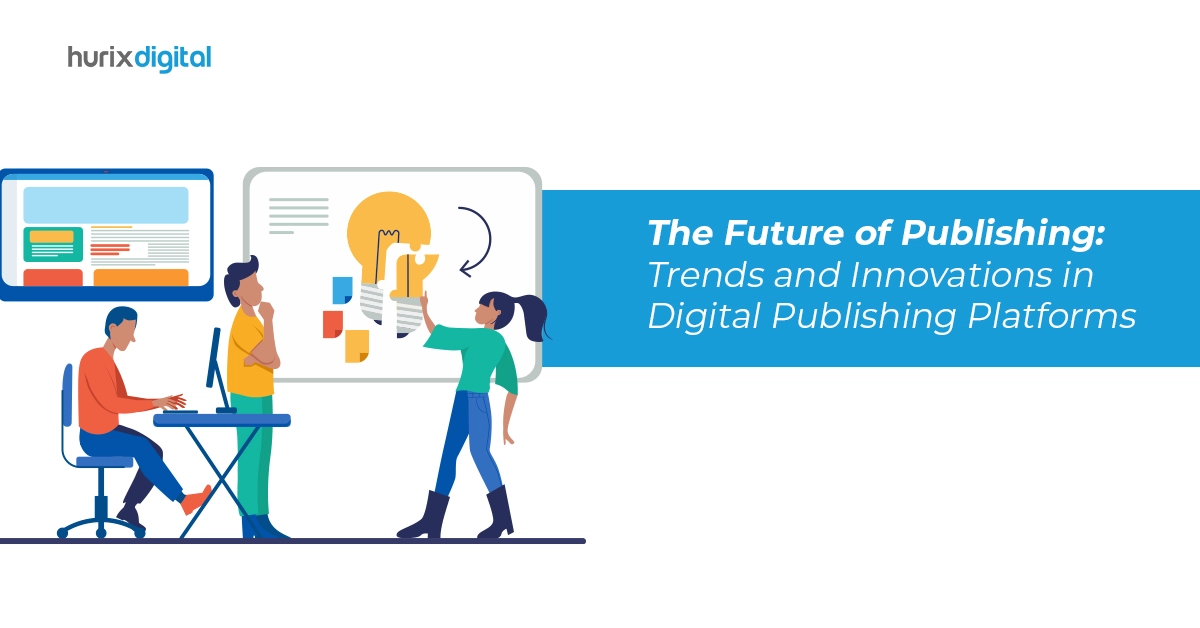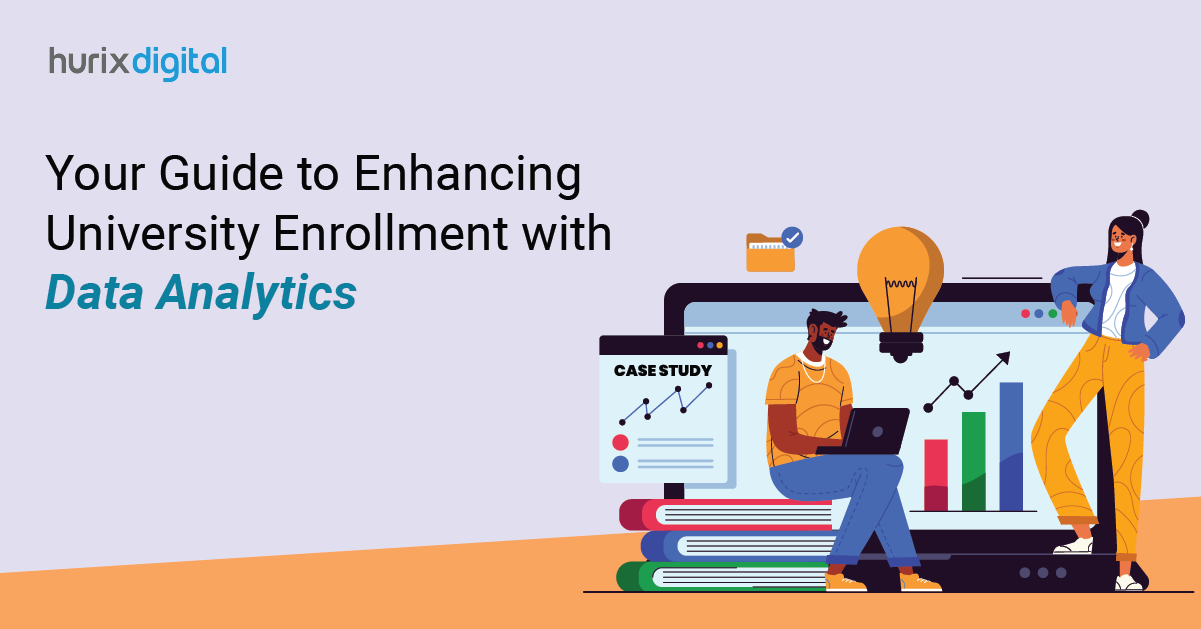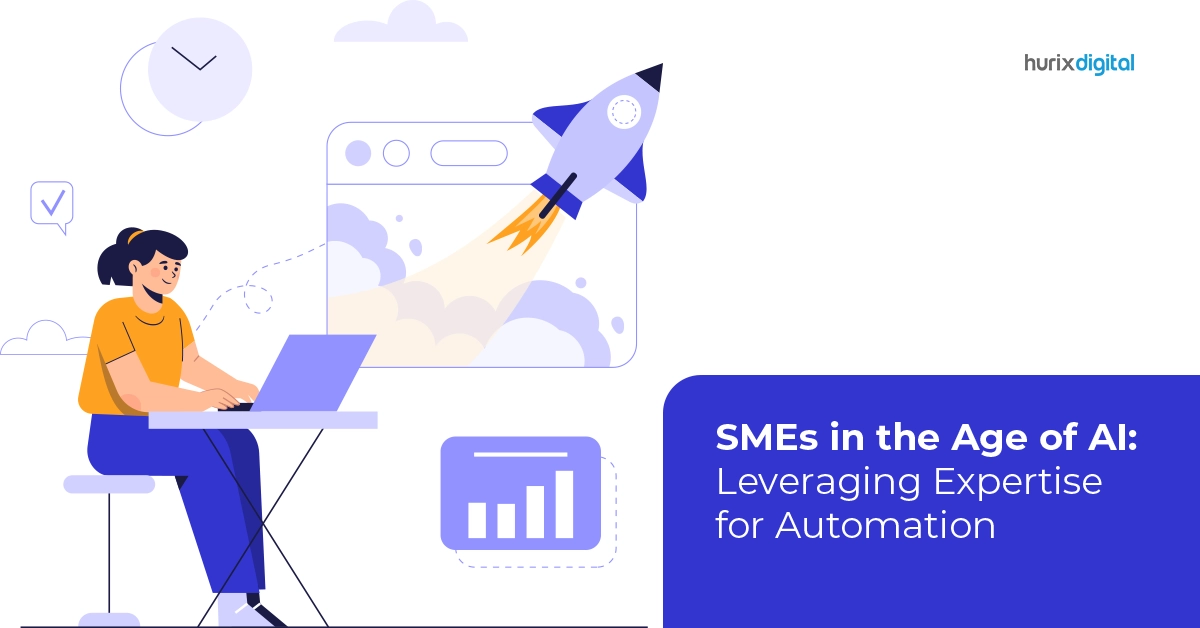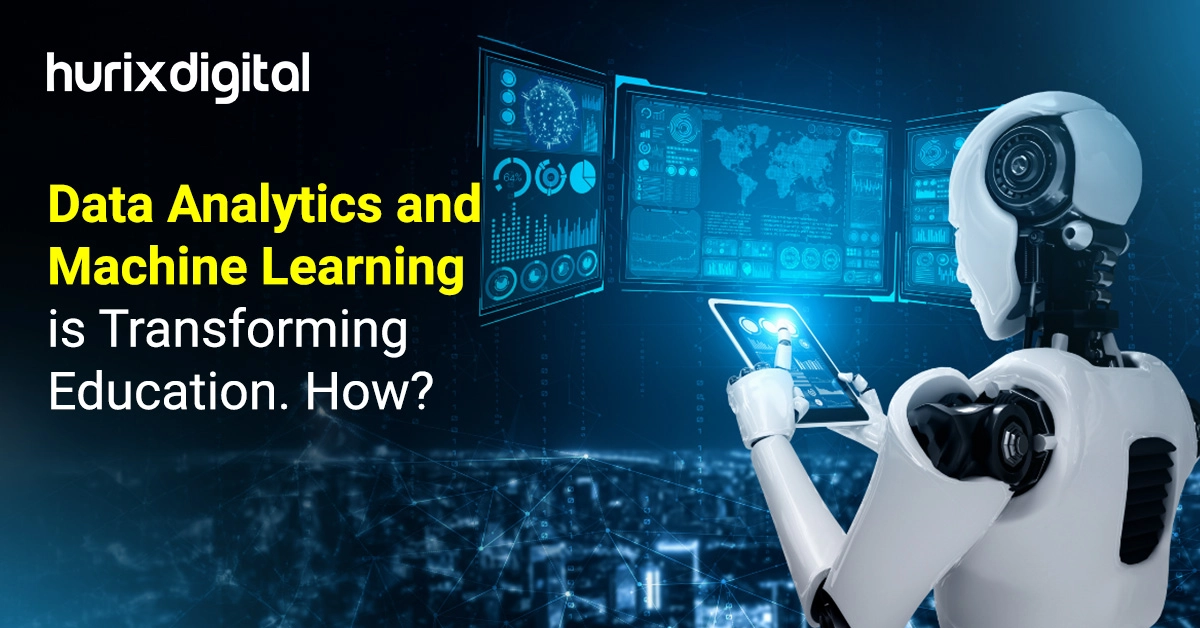
Data Analytics and Machine Learning is Transforming Education. How?
Summary
This blog discusses how higher educational institutions can leverage data analytics and machine learning to enhance student engagement, streamline operations, and offer personalized learning experiences.
Today, higher educational institutions are facing unique challenges due to several factors. With student populations declining, the enrollment rate is expected to fall.
The college-level learner population in the USA, for instance, is likely to fall by 15% between 2025 and 2029. Simultaneously, students aspire for superior skill-building and learning via mobile-first programs that deliver differentiated value.
Early investments in the combined power of data analytics and machine learning can help forward-thinking higher educational institutes improve the quality of education and drive enrollments.
In this blog, we deconstruct how these technologies can be leveraged effectively by educators to stay competitive and relevant to prospective students.
Table of Contents:
- Data Analytics and Machine Learning Simplified
- 7 Ways to Leverage Data Analytics and ML in Education
- Impact of Data Analytics and Machine Learning in Education
- Final Words
Data Analytics and Machine Learning Simplified
Data analytics is a structured process that has helped organizations adopt a data-driven culture. However, the traditional approach uses historical data to offer insights into learner engagement and other key metrics.
On the other hand, when machine learning (ML), a branch of Artificial Learning (AI), is used in the data analytics process, institutes can completely overhaul their approach. They can forecast how learners will perform in the future, elevate the learning process, and boost student outcomes.
Chief information officers can play a pivotal role in guiding educational institutions through this transformative journey. By strategically integrating data analytics and machine learning, CIOs can lead initiatives that enhance student engagement, optimize operational efficiencies, and personalize learning experiences.
These technologies empower institutions to predict student needs, streamline administrative processes like enrollment, and tailor educational content to individual learning styles.
Also Read: 5 Ways AI Analytics Can Supercharge Your Educational Strategy Right Now!
7 Ways to Leverage Data Analytics and ML in Education
Contemporary educational institutes are shifting from using legacy Learning Management Systems (LMS) to automated, AI-powered software. By doing so, they can leverage the benefits of technologies like ML, automation, and cloud computing, which harness the value of big data analytics in higher education.
Here’s a snapshot of how institutions are using data analytics and machine learning to their advantage:
1. Leverage the Power of Predictive Analysis
An AI-powered LMS comes equipped with in-built predictive data analytics, which allows educational institutions to forecast future trends, behaviors, and outcomes.
The software automatically analyzes and interprets historical data, such as student grades and engagement rates, using a wide range of ML algorithms. Institutes are using this wealth of data insights to make strategic, data-driven decisions.
2. Streamline the Enrollment Process
Universities typically enroll students with the highest scores. However, this process may not have the best Return on Investment (ROI); these students may leave for better universities or drop out due to inconsistent performances.
By processing a mix of student data, from grades and attendance records to performance in extracurricular activities, universities are more likely to select learners best suited to the institute’s culture and legacy.
Studies show that by using data analytics and ML, institutes can analyze over 150 attributes of student data collected over multiple years. This approach helps them design a data-driven admissions process with higher conversion and retention levels.
3. Deliver Differentiated Learning Programs
The use of machine learning in data analysis is helping institutes design and deliver more relevant and engaging programs.
They can identify areas where programs can be strengthened and aligned with contemporary student career aspirations. Today, institutions can completely automate the creation, publishing, and distribution of byte-sized, on-demand multimedia learning resources using an ML-powered LMS.
4. Craft Personalized Learning Paths
Today, a growing number of institutions are crafting personalized learning paths for students. Rather than offering standardized programs, lessons are tailored to their specific needs.
The entire personalization process is automated. Benefits for students include quicker absorption and longer retention of concepts, enhanced learner engagement, flexibility and autonomy, and more emphasis on weak areas.
5. Make Content Accessible
The combined use of data analytics and machine learning is enabling institutes to offer inclusive programs that appeal to a wider demographic of learners.
Content and communication can be made accessible for students with diverse learning needs, including those with visual and hearing challenges, learning difficulties, and cognitive limitations. For instance, the use of chatbots, speech recognition, automated subtitles, text-to-speech capabilities, and vice versa is growing.
6. Automate Online Assessments
The use of machine learning in data analysis is helping institutions overhaul their online testing framework.
Based on student data, assessments can be digitized, personalized, and conducted at regular intervals to test concept mastery. A combination of automation, data-centricity, and the use of ML enables instant grading and feedback for learning. Learners receive in-depth reports and recommendations for improvements.
7. Identify and Fill in Knowledge Gaps
Big data analytics in higher education empowers colleges to process large volumes of data quickly and efficiently. The data helps educators accurately identify major learning gaps. In turn, they can introduce coaching, learning resources, and additional support to drive better learning outcomes in these areas.
On this note, chief information officers can significantly drive the integration of these advancements into educational frameworks.
By championing the adoption of AI-powered tools and data analytics platforms, CIOs enable institutions to enhance student engagement, optimize administrative processes, and improve overall educational outcomes. This strategic approach not only supports personalized learning experiences but also strengthens institutional competitiveness in a rapidly evolving educational landscape.
Impact of Data Analytics and Machine Learning in Education
Here’s a look at the transformative effect of data analytics and machine learning in the higher education domain:
1. Improved Performance of At-Risk Students
Institutions can identify and support at-risk learners early on. By doing so, they can improve the engagement of weaker students and offer the necessary tools to help them excel.
2. Enhanced Enrollment Outcomes
By analyzing and interpreting student enrollment data in depth, institutions can predict future student behavior based on how students will perform.
These include higher grades, quicker knowledge absorption, superior knowledge retention, and job readiness when learners graduate. In turn, these outcomes boost the reputation of the institute and pave the way for higher enrollments in the future.
3. Superior Educational Outcomes
As students become more engaged through personalized, interactive programs, educational institutes can expect to drive superior learning outcomes. For instance, research conducted in the USA revealed that of the 500 practicing educators surveyed, 5% of them believed that the use of AI and ML had helped improve educational outcomes.
Also Read: How do We Technically Approach AI/ML Solutions?
Final Words
By utilizing the power of data analytics and machine learning, higher educational institutes can optimize operations and drive superior student outcomes in the digital era.
By adopting an AI-powered LMS, institutes can automate the educational workflow end-to-end and make data-driven decisions. Higher educational institutes looking to transform their operations and offerings can greatly benefit from the use of machine learning in data analysis. Hurix Digital is geared to support them in delivering on their goals.
Get in touch with us to start a conversation!

Currently serving as the Vice President of Technology Delivery Operations at HurixDigital, a prominent global provider of digital content and technology solutions for publishers, corporations, and educational institutions. With over 16 years of experience spanning EdTech and various domains, I hold certification as a SCRUM Product Owner (CSPO). My expertise includes operations, finance, and adept people management skills.
